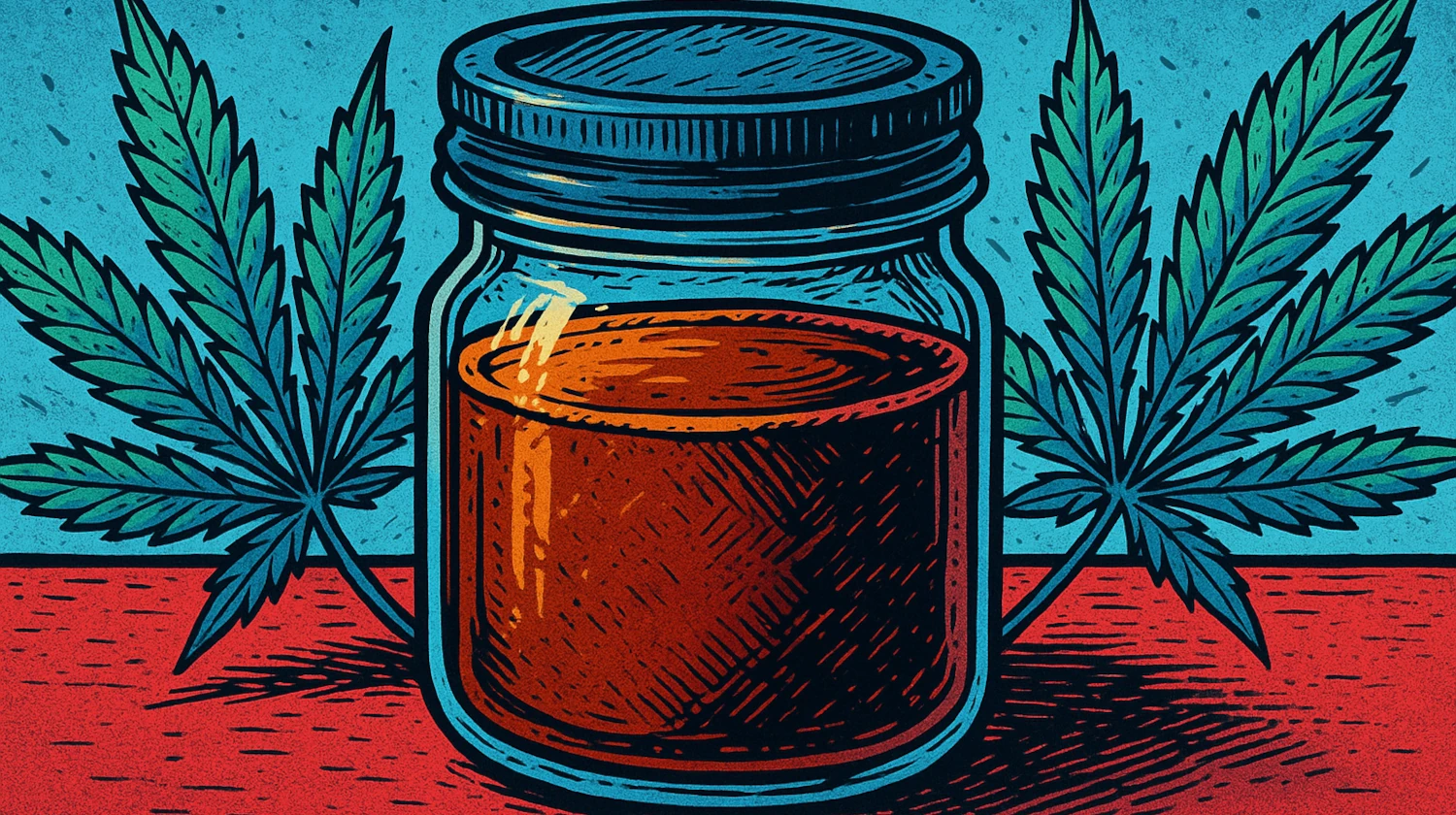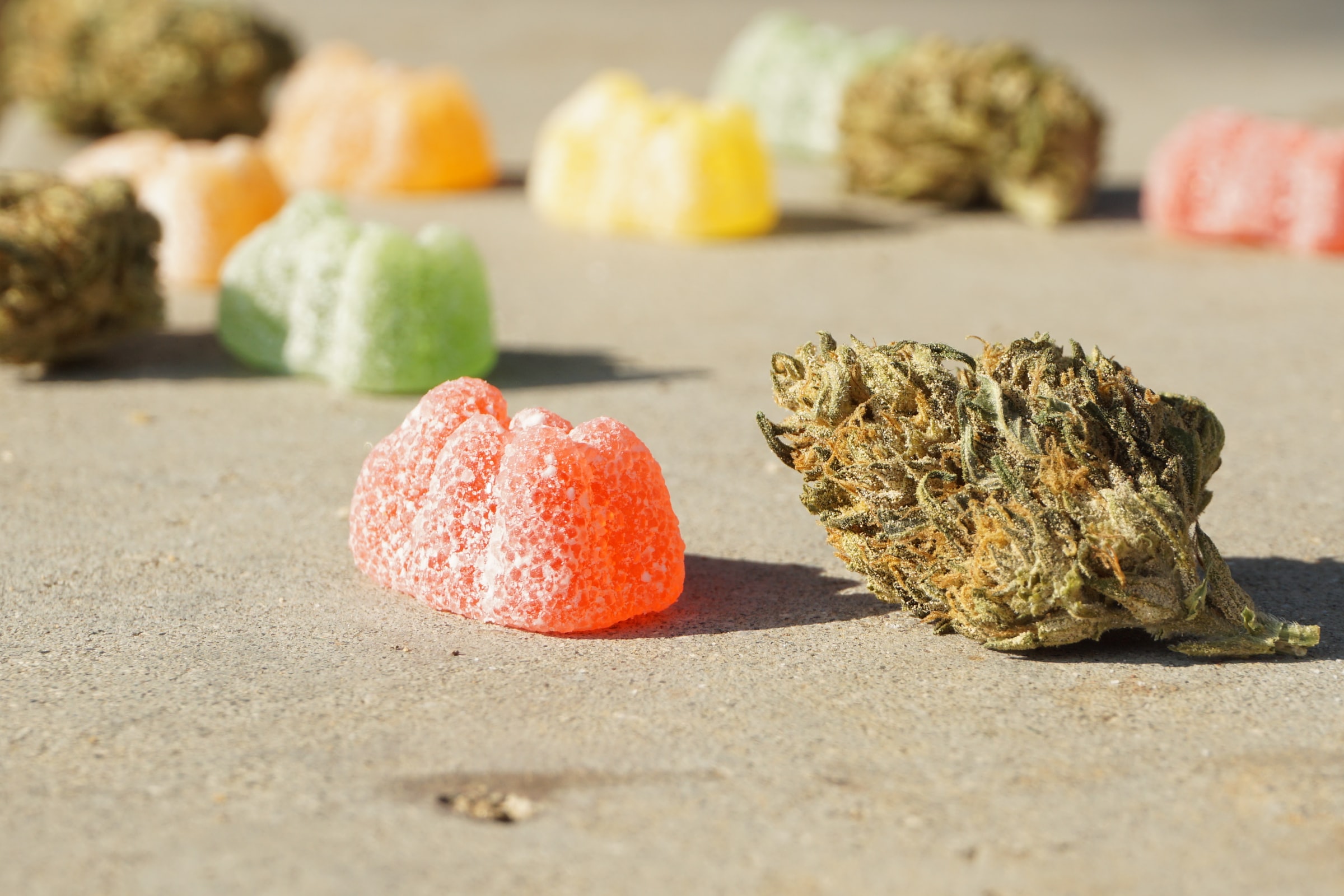Rick Simpson oil (RSO) is a concentrated cannabis extract known for its high THC levels and potential health benefits, including pain relief and adjunct cancer therapy. Despite its popularity for oral and topical use, many wonder: Can you smoke RSO?
What is RSO?
RSO is a potent cannabis extract named after its creator, Canadian cannabis activist Rick Simpson. This thick, dark oil is sometimes compared to tar due to its consistency. It is produced by concentrating the full range of cannabinoids and terpenes from cannabis flowers, typically using a solvent like food-grade ethanol.
Simpson developed RSO with the intention of treating his own basal cell carcinoma. This led to widespread interest and anecdotal reports of its efficacy in managing various medical conditions, from cancer to chronic pain.
RSO is distinguished by its high THC content and the addition of plant materials like chlorophyll, which many believe contribute to its reported benefits. While scientific research on RSO specifically is limited, some research suggests it may help alleviate chronic pain, reduce inflammation, and even assist in managing symptoms related to cancer and multiple sclerosis.1
Some studies on whole-plant cannabis extracts, like RSO weed extracts, suggest the potential for THC and CBD to offer neuroprotective and anti-inflammatory effects. This may contribute to some of the benefits associated with RSO use. RSO’s therapeutic potential is not only attributed to its high THC content but also its other active components.
Terpenoids and flavonoids may also modify the effects of THC, potentially enhancing its therapeutic efficacy. For instance, terpenoids are thought to increase blood-brain barrier permeability, while flavonoids like apigenin could mitigate inflammation by affecting TNF-α, an inflammatory cytokine.2
How to Use RSO, Normally

RSO is traditionally used for its potent therapeutic effects, either consumed orally or applied topically. Given its highly concentrated form, RSO is typically administered in small, measured doses to manage its potent effects. A common method involves suppositories or using an RSO syringe for precise dosing, allowing users to consume the oil directly, mix it with food, or apply it to the skin.
When taken orally, RSO may be particularly effective for systemic treatments, potentially offering relief from pain or serving as a supplementary treatment in cancer care. The full-body impact of THC is used this way. When processed by the liver, THC is converted into 11-hydroxy-THC, a compound renowned for its potent and long-lasting effects.
Topical application is another common use, particularly for localized issues like skin conditions or certain types of pain. Applying RSO directly to the affected area allows the cannabinoids to engage directly with local receptors, providing focused relief without significant effects on the rest of the body.
Asking, “Can you dab RSO?” is common, but dabbing RSO isn’t recommended. Unlike other cannabis concentrates specifically designed for high-temperature vaporization, RSO's composition can contain trace amounts of residual solvents from its extraction process, like ethanol. These can become harmful when exposed to the high heat required for dabbing. RSO's thick, tar-like consistency due to the fats and chlorophyll is not ideal for the quick and clean vaporization that dabbing requires. Dabbing RSO could lead to an unpleasant experience and ineffective delivery of RSO's therapeutic compounds.
If you’re looking to explore beyond the traditional consumption methods, RSO can be creatively incorporated into edibles or simply placed on a cracker with some peanut butter. This adaptability opens up various ways to experience the benefits of RSO, catering to different preferences and needs.
Given RSO's strength, approach RSO with caution, especially if you're new to it. Start with a minimal dose and gradually increase it to find your ideal level, ensuring your use of RSO remains both effective and enjoyable. This careful approach helps you make the most of RSO's benefits while minimizing any potential discomfort.
Can You Smoke RSO?
While it might be technically possible to smoke RSO, it's strongly discouraged.
RSO is a highly concentrated cannabis extract that, unlike other forms of cannabis concentrates, is not designed for inhalation. The production process of RSO involves solvents like ethanol, which can leave residual substances in the oil. When heated for smoking, these residues could potentially release harmful toxins, posing health risks.
RSO's thick, viscous consistency, which retains a significant amount of plant matter, makes it unsuitable for smoking. This dense composition is far from the ideal consistency of substances typically smoked or vaporized. The primary design of RSO is for it to be ingested orally, applied topically, or used as a suppository, leveraging its potent therapeutic effects through these safer and more controlled methods of administration.
Due to these factors, smoking RSO is not a common practice among users, nor is it recommended. Those looking to use RSO recreationally should stick to safer methods, ensuring they enjoy its benefits without risking their health. Remember, the best way to experience RSO's potential is through the practices it was intended for.
Benefits of Smoking RSO

When it comes to smoking RSO, the consensus among experts and research, or lack thereof, is unanimous: There are no benefits that justify the risks. Smoking RSO is strongly discouraged due to the absence of evidence for any therapeutic gains from this consumption method and the way it is processed.
RSO is specifically designed for oral ingestion or topical application, where the full spectrum of cannabinoids can be used effectively. RSO is full of fats and chlorophyll, making for an unpleasant taste and a messy way to smoke while also introducing the risk of inhaling harmful byproducts from the solvents used in its creation. The best way to harness the potential benefits of RSO remains through the recommended methods of consumption, ensuring both safety and efficacy for users seeking its therapeutic properties.
Risks of Smoking RSO
Smoking RSO presents several risks that are important for users to understand. Unlike traditional cannabis flowers or concentrates designed explicitly for inhalation, RSO's composition and the solvents used in its production make it unsuitable and unsafe for smoking.
One of the primary concerns is the presence of residual solvents like ethanol in RSO. These substances are used in the extraction process to concentrate the cannabinoids and terpenes from the plant material.
The process may leave behind high levels of ethanol compared to other cannabis extracts, which reduces residual solvents to safe consumption levels. When RSO is smoked, these residual solvents can combust, potentially releasing harmful toxins that can be damaging to the lungs and overall health. Since RSO contains a relatively significant amount of plant matter, burning it can produce harsh smoke that irritates the respiratory system.
The high concentration of THC in RSO can lead to an intense, intoxicating experience that may not be desirable for all users. This is particularly important for those with lower tolerances or those using cannabis for medicinal purposes.
The risk of consuming too much THC, leading to uncomfortable or adverse effects, may be heightened if RSO is smoked.
How to Smoke RSO

Smoking RSO is not advised due to safety concerns and the potential degradation of its therapeutic compounds. RSO is designed for oral or topical use, and the solvents used in its production and high levels of plant matter present can be harmful when inhaled. Oral, topical, or suppository use is the best way to consume RSO. For those seeking to enhance their cannabis experience, especially in terms of flavor, potency, and harnessing the full spectrum of cannabis compounds, there are safer and more suitable alternatives to RSO for smoking.
Concentrates like butane hash oil (BHO), live resin, rosin and live rosin, and high-terpene full spectrum extracts (HTFSE) are specifically crafted for inhalation and contain a high concentration of the plant’s therapeutic compounds. These products undergo sophisticated purification and filtration processes to remove plant matter and residual solvents, making them a safer option for enhancing flower bowls or joints.
If you're drawn to the idea of boosting the cannabinoid and terpene profile of your cannabis flower, consider adding clean concentrates into your routine by either of the following options:
- Adding to a Bowl: Place a small amount of concentrate on top of your cannabis flower in a bowl. Light it gently with a lighter or hemp wick to avoid burning the concentrate too quickly.
- Rolling with a Joint: Spread a thin layer of concentrate inside your rolling paper before adding your ground cannabis. Roll as usual and enjoy the enhanced effects.
RSO: To Smoke or Not?
While RSO offers a range of therapeutic benefits, it's clear that smoking RSO is not in line with its intended use or best practices for health and safety. Stick to exploring alternative, safer methods of cannabis consumption, such as using specifically designed concentrates. If you’re interested in RSO, adhere to RSO's recommended oral and topical applications to allow yourself to maximize the benefits of cannabis while minimizing potential risks.
References
- Lakhan SE, Rowland M. Whole plant cannabis extracts in the treatment of spasticity in multiple sclerosis: a systematic review. BMC Neurol. 2009;9:59. Published 2009 Dec 4. doi:10.1186/1471-2377-9-59 ↩︎
- McPartland JM, Russo EB. Cannabis and Cannabis Extracts. Journal of Cannabis Therapeutics. 2001;1(3-4):103-132. doi:https://doi.org/10.1300/j175v01n03_08 ↩︎
The information in this article and any included images or charts are for educational purposes only. This information is neither a substitute for, nor does it replace, professional legal advice or medical advice, diagnosis, or treatment. If you have any concerns or questions about laws, regulations, or your health, you should always consult with an attorney, physician or other licensed professional.




